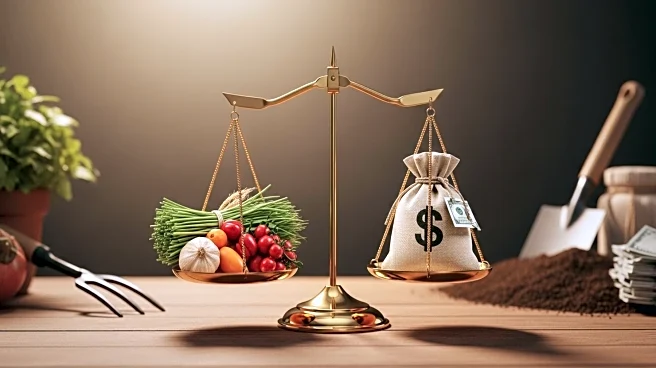What's Happening?
Agriculture Secretary Brooke Rollins, a prominent supporter of tariffs within the Trump administration, has shifted her stance by suggesting a bailout for American farmers affected by these tariffs. Initially, Rollins championed tariffs as a means to realign the American economy and open new markets for farm products. However, the tariffs have led to increased costs for farm equipment and fertilizers, with companies like John Deere facing significant financial impacts. The American Soybean Association has expressed concerns over the financial stress caused by the trade war, as retaliatory tariffs from China have made South American soybeans more competitive. Despite these challenges, Rollins remains committed to the tariff strategy but acknowledges the need for a bailout funded by tariff revenue.
Why It's Important?
The shift in policy highlights the complex impact of tariffs on the U.S. agricultural sector. While intended to protect American interests, the tariffs have inadvertently increased costs for farmers and disrupted international trade relationships. The proposed bailout aims to mitigate these effects, but it raises questions about the sustainability of such measures and the long-term viability of tariff-driven policies. The situation underscores the delicate balance between protecting domestic industries and maintaining competitive global trade practices.
What's Next?
The Trump administration is preparing to announce a bailout package for farmers, drawing funds from tariff revenue. This move is expected to redistribute tax dollars to support farmers, but it may favor those with better connections rather than those most affected. The administration's approach will likely continue to evolve as it seeks to address the economic challenges faced by the agricultural sector.









